Gujarat’s Disturbed Areas Act: Largest Muslim Ghetto Glaring Contrast to Hindu Settlement
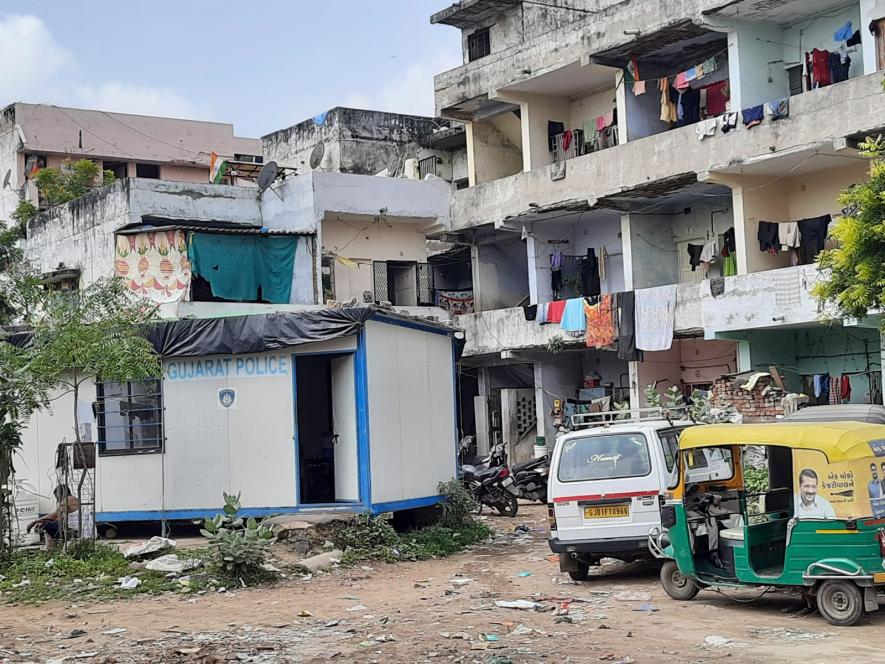
Jhalak, the only flat where Dalits reside at the Centre of Juhapura
The streets become narrower and the tall buildings are replaced by small houses as the entrance to the country’s largest Muslim ghetto leads towards settlements of the minority community. Finally, a 20-feet high wall with fencing separates the Hindu settlement and the Muslim slums.
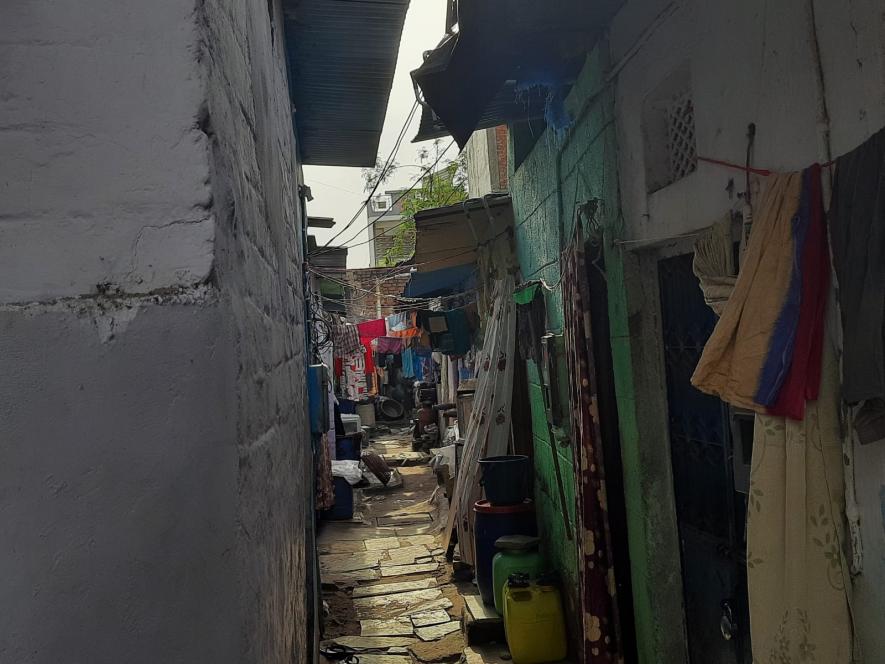
The narrow lanes inside the slums of Rakhiyal
Welcome to Juhapura, a Muslim neighbourhood in the west of Gujarat’s largest city Ahmedabad that has been segregated under the Disturbed Areas Act, 1991, which was introduced in 1986 as an ordinance by the then-Congress government after the 1985 communal riots.
The Act, which aimed to usher in peace in the communally charged-up city back then, meant nothing more than preventing one community from buying property in another’s area. However, much has changed since then.
With the Assembly election right around the corner, minorities stuck in areas where the Act is applicable narrate their plight and what the polls mean for them.
“Have you ever seen such a wall of separation in any other city?” asks Haji (55) as he walks through these lanes showing the difference between the Hindu and Muslim settlements.
The contrast is glaring with tall buildings in the Hindu area and waterlogged lanes, crumbling small houses and the poor economic condition of residents in the Muslim settlement. “Most of the residents here are either autorickshaw drivers or daily wagers,” adds Haji.
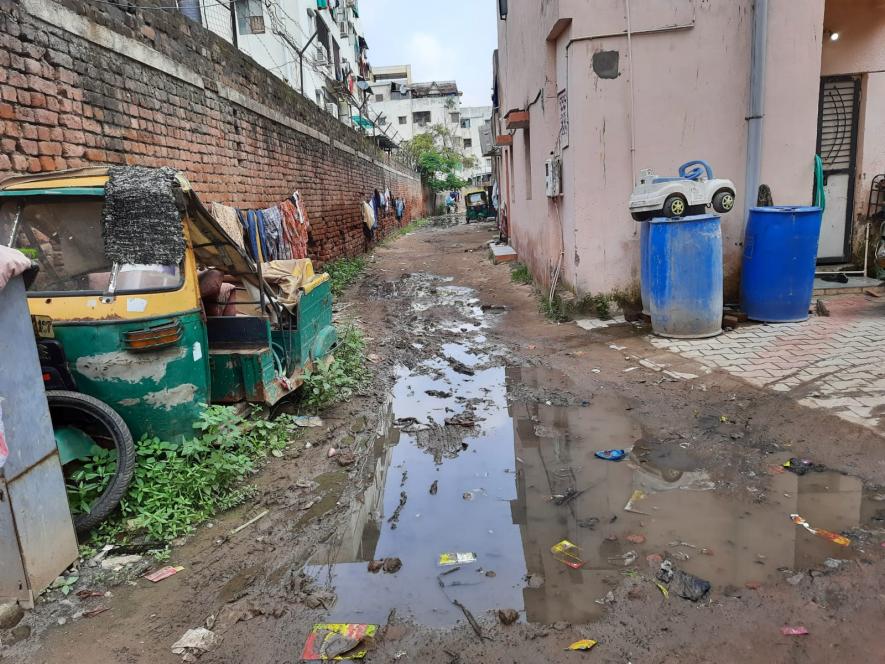
Water-logged streets of Juhapura in October
The wall has reduced Hindu-Muslim interaction to a bare minimum. “We do not bother them and they don’t bother us. There is no interaction even during festivals,” says Haji pointing to the segregation.
Rahim, a local corporation school principal, recalls his childhood before the wall was constructed. “Festivals used to be so beautiful back then with Hindus and Muslims visiting each other’s houses. We would play together and I spent more time with my Hindu friends than at home. My kids, on the other hand, do not even about Diwali,” a sad Rahim says.
Difficult life without basic necessities
Life in Juhapura is difficult. “Every year, the area gets waterlogged till the knees for, at least, 8-10 days. Water enters our houses and children find it difficult to attend school,” says Amina narrating one of the several problems plaguing the slums.
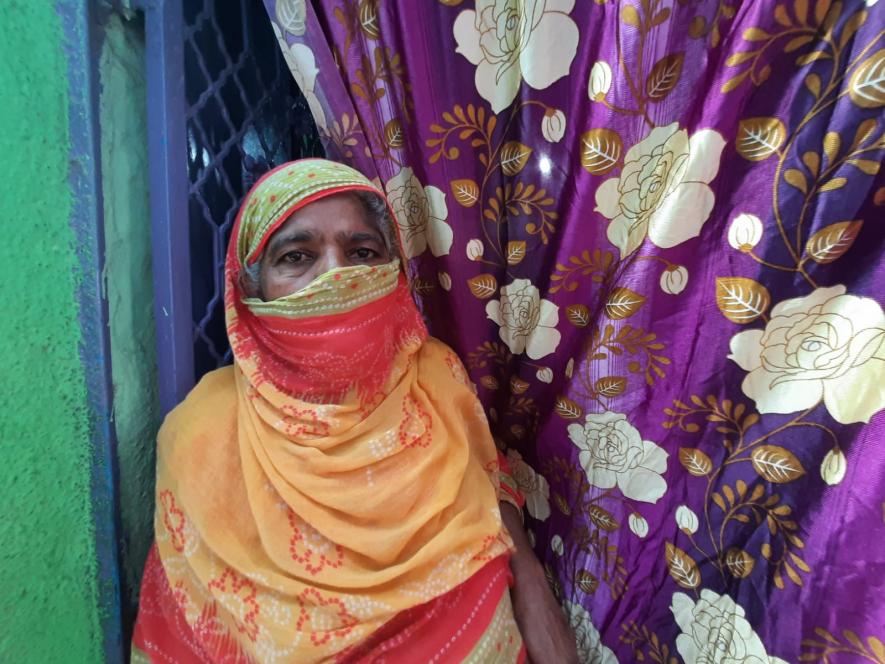
Amina, who lives with her daughter-in-law and grandchildren in the slums of Juhapura. Her house faces severe water-logging every year.
Poor drainage is another problem not just in Juhapura but other Muslim settlements in Rakhiyal, Bapu Nagar and Vatva and other areas in the far east and west sides of Ahmedabad, causing drinking water issues.
Iqbal Shaikh, a former corporator from Rakhiyal, narrates his experience with drainage during his five-year tenure. “I wrote letters to the authorities regarding the poor drainage but didn’t receive any response. Even I could not get safe drinking water.”
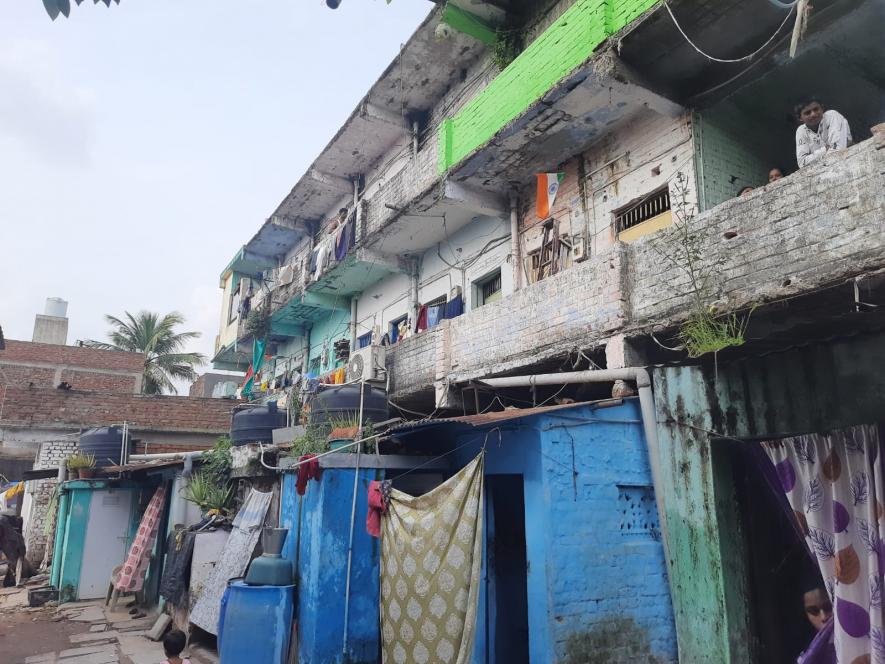
A chawl at Rakhiyal
Even the dead have no space post-pandemic. The only burial ground in Juhapura isn’t adequate enough to accommodate more bodies following the deaths caused by COVID-19. Local corporator Haji Kalandar has written several letters to the local MLA and the MP requesting space for another burial ground but all in vain.
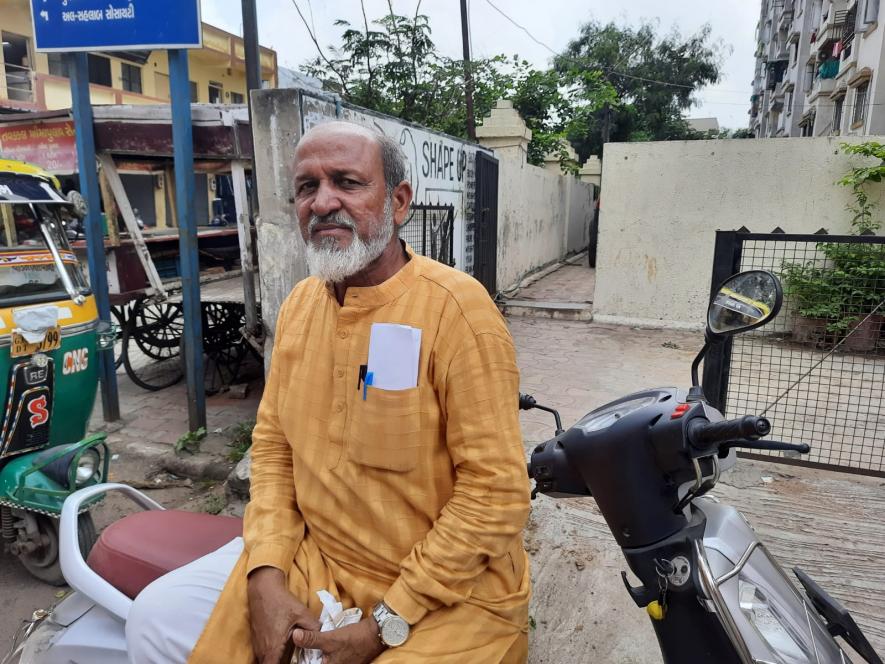
Haji Kalandar, corporator from Juhapura, who went up to the High Court to get his people clean drinking water
As a vehicle collecting garbage approaches, the Muslim residents say it only plies in the Hindu settlement. Muslims dump their garbage on a nearby barren land.
“Narendra Modi claims to have done a lot for Gujarat. But why are we being ostracised and deprived of development?” questions Anita, one of the few Dalit residents who reside on the Muslim side of Juhapura.
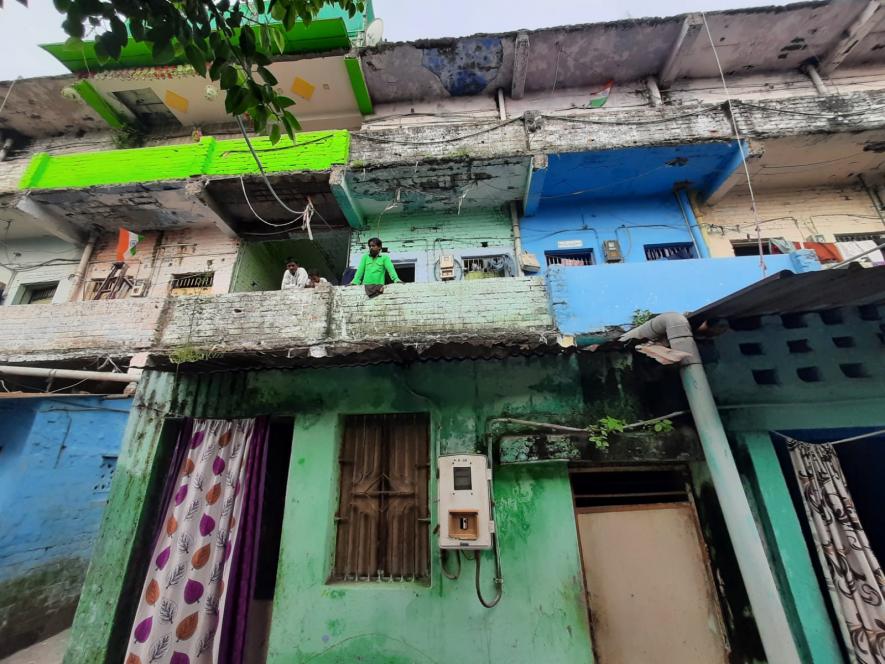
Houses in Rakhiyal slums that need urgent attention
For example, the slums are deprived of the Centre’s Har Ghar Nal Yojana 2022, aimed at supplying drinking water to every household in the country. Activists have even approached the Gujarat High Court (HC) demanding the start of the scheme in the area but to no avail.
Sale and purchase of property not possible
Vijay owns a small grocery shop in Bapu Nagar, which has a mixed population with Muslims in the majority. He sold his house, located right opposite to the dargah, in 2021 to fellow resident Saleem, who was supposed to shift there in a few days. “When the Hindus in the area became aware of the sale, local goons threatened to boycott me from the community. I was ultimately forced to return the money to Saleem and scrapped the sale,” he says.
Right at the centre of Juhapura is a building named Jhalak, which is owned by Dalits. While the community has no problem staying in a Muslim-dominated area, the trauma of the 2002 riots is still fresh.
Women in the area narrate their problems. “It is impossible to sell the houses here due to the image of our building. We have tried several times but nobody is ready to buy a house here,” says Shamita (50). Despite improving their living conditions in the past decade, they are unable to move out of Juhapura. “Who would want to live in a dump yard like this?”
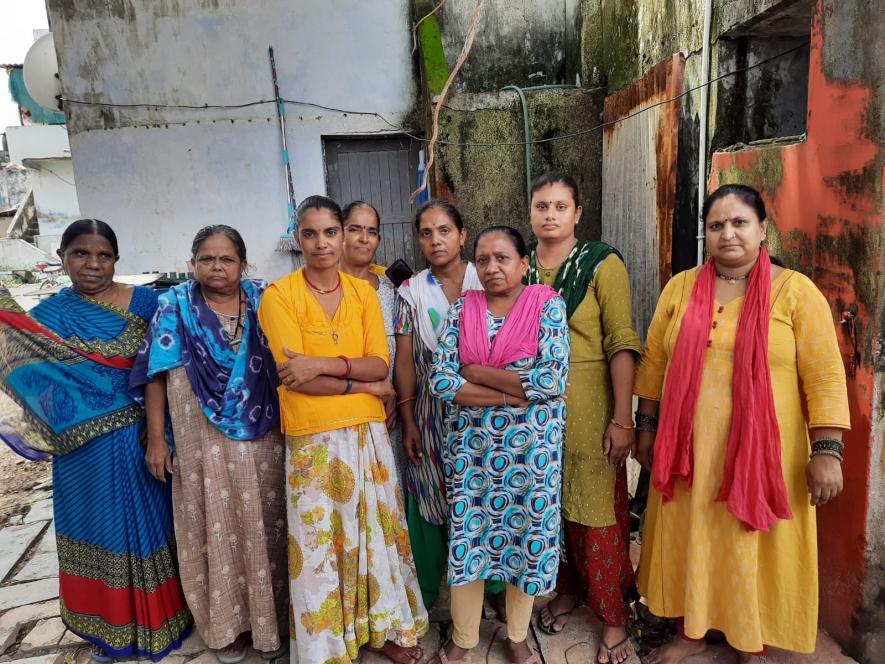
Women residents of Jhalak Flat in Juhapura
Lawyers requesting anonymity say they have approached the court several times to ameliorate the pathetic situation of the slums. The Act was challenged in August on the ground that it does not give the residents a scope to register objections against an area being demarcated as communally disturbed. Last month, the HC sent a notice to the state government challenging a notification imposing the Act in 28 areas under the Gandhigram Police Station of Rajkot.
The writer is a freelance journalist based in Delhi and is travelling to Gujarat to report on the Assembly elections.
Get the latest reports & analysis with people's perspective on Protests, movements & deep analytical videos, discussions of the current affairs in your Telegram app. Subscribe to NewsClick's Telegram channel & get Real-Time updates on stories, as they get published on our website.























